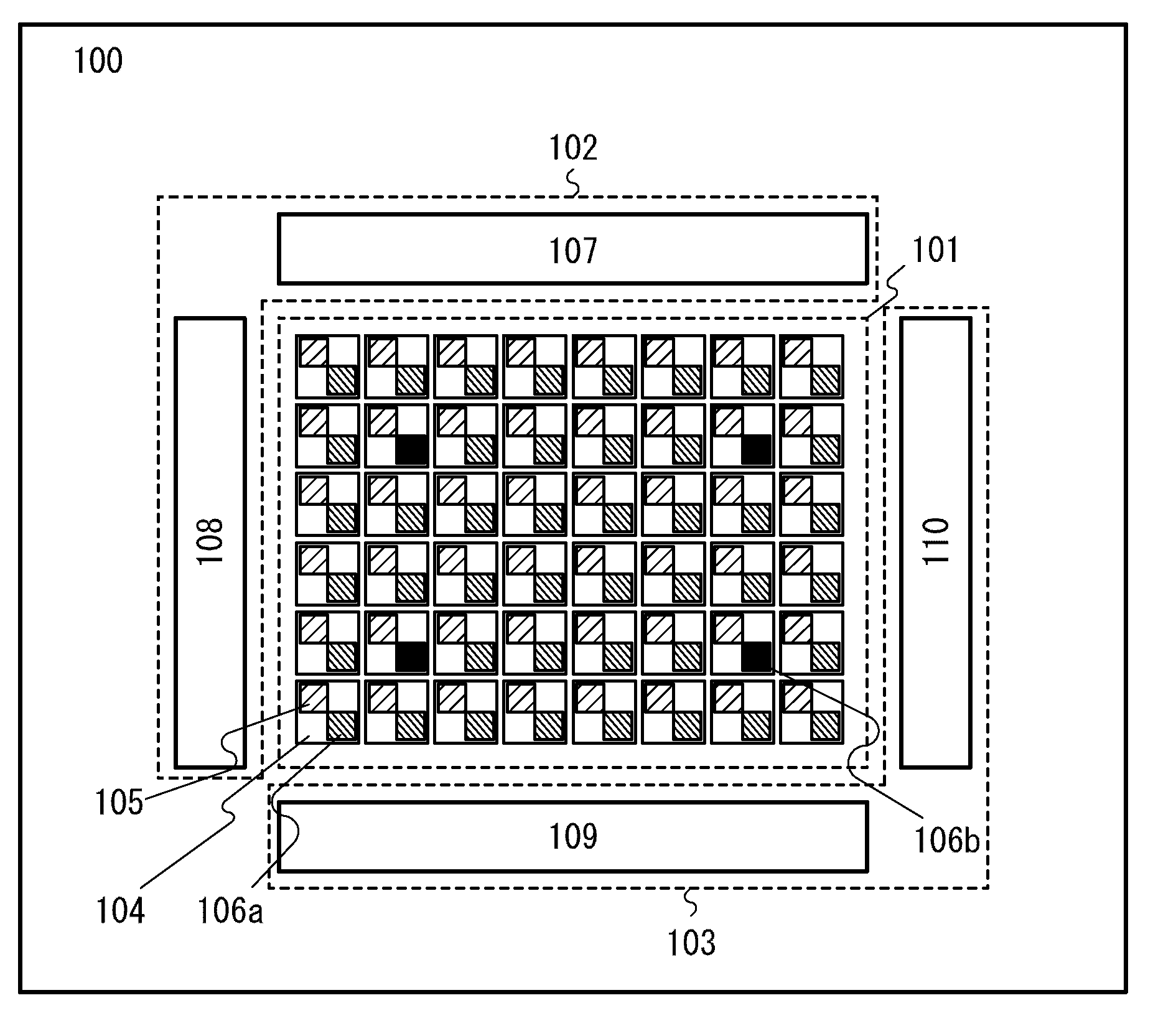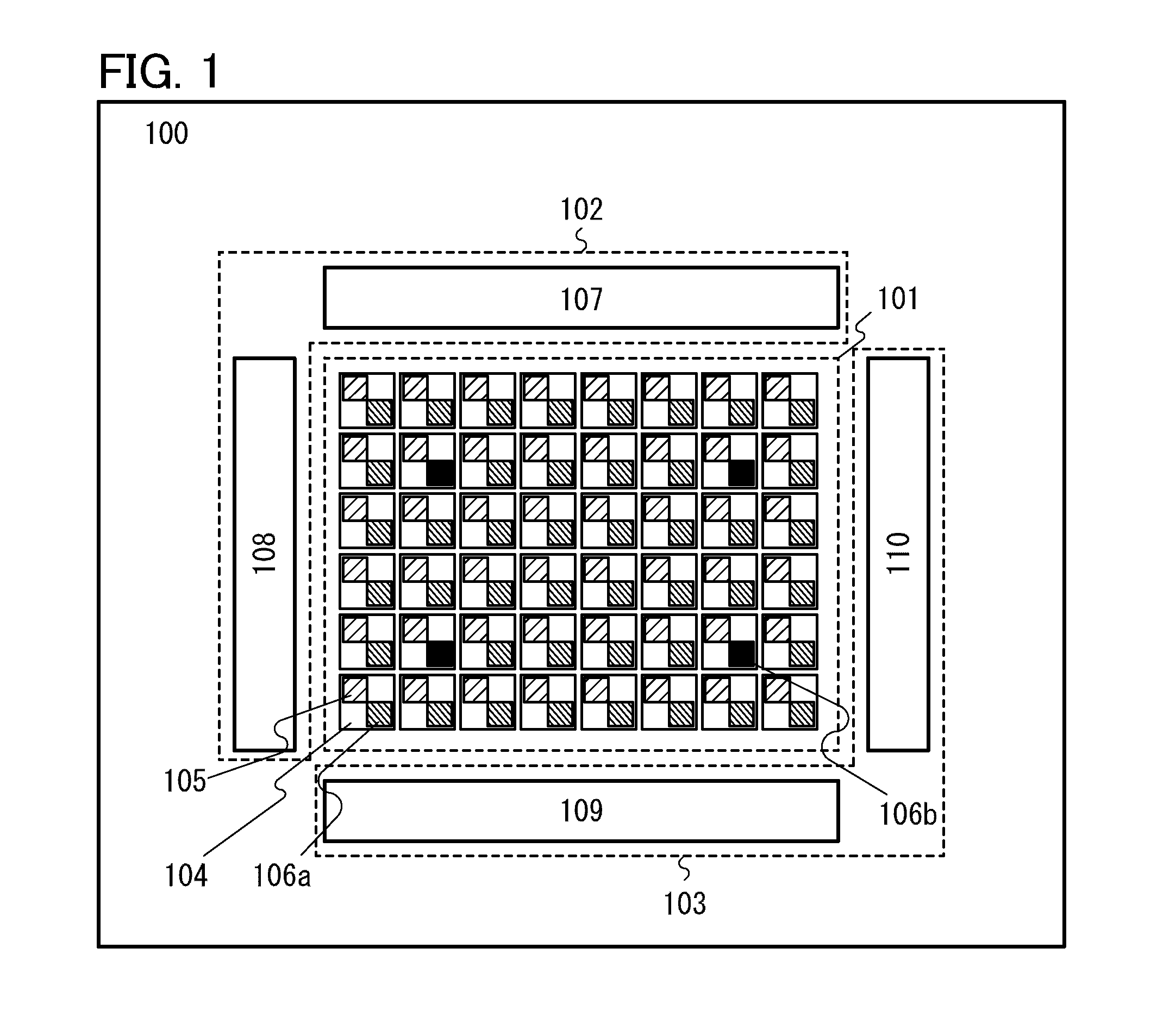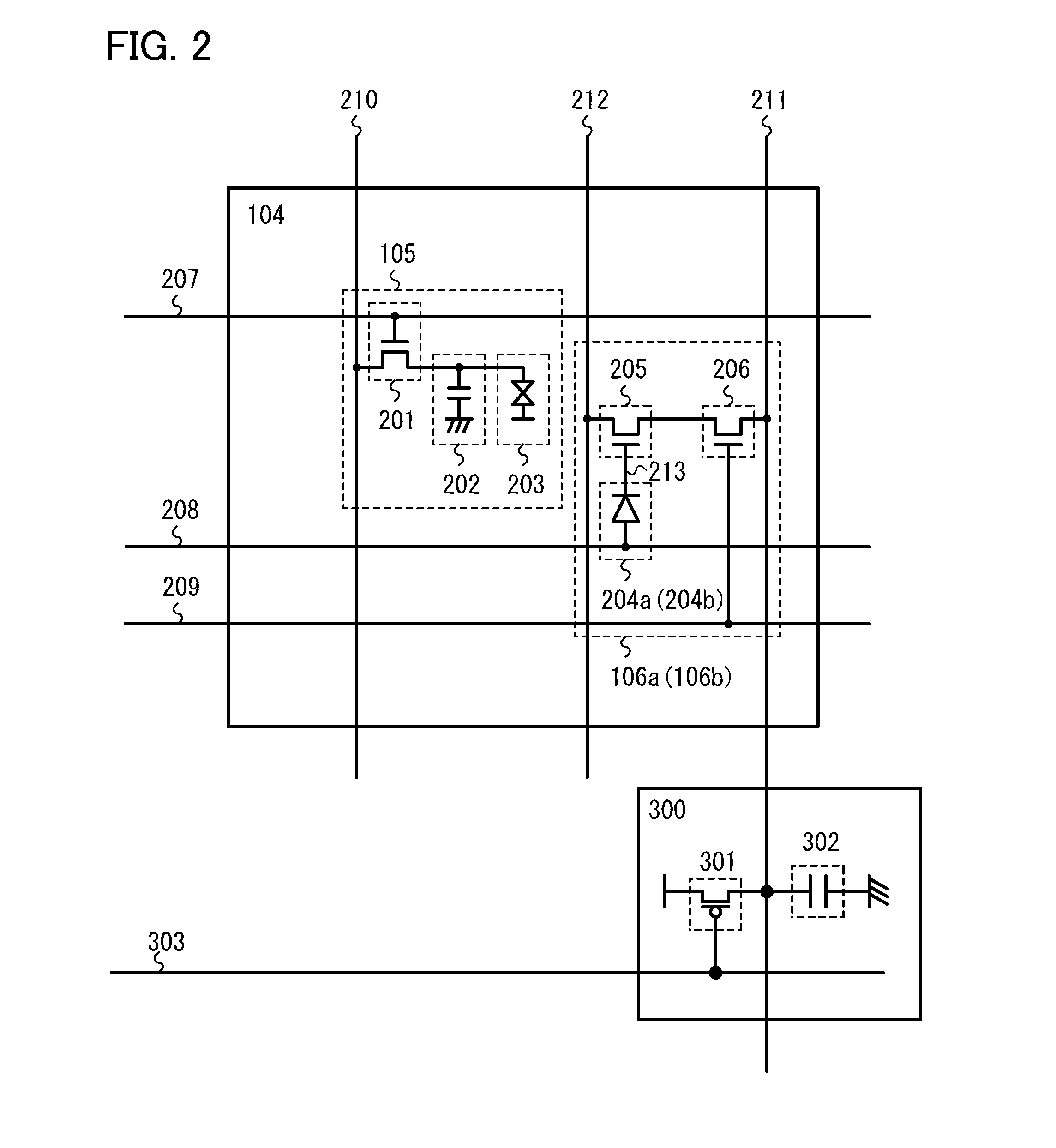Display device and method for driving display device
a display device and display device technology, applied in the direction of optical radiation measurement, identification means, instruments, etc., can solve the problems of easy affecting imaging accuracy, false recognition, and difficult recognition of photosensors by external light, so as to prevent false recognition
- Summary
- Abstract
- Description
- Claims
- Application Information
AI Technical Summary
Benefits of technology
Problems solved by technology
Method used
Image
Examples
embodiment 1
[0033]In this embodiment, a display device according to one embodiment of the present invention will be described with reference to drawings. FIG. 1 illustrates an example of a structure thereof.
[0034]A display device 100 includes a pixel circuit 101, a display element control circuit 102, and a photosensor control circuit 103. The pixel circuit 101 includes a plurality of pixels 104 arranged in a matrix of rows and columns. Each pixel 104 includes a display element portion 105, and a first photosensor portion 106a or a second photosensor portion 106b, for example.
[0035]The first photosensor portion 106a is provided to obtain an image, and the second photosensor portion 106b is provided mainly to detect the intensity of external light. Note that in some cases, imaging is performed with the second photosensor portion 106b.
[0036]It is not necessary to provide the photosensor portions for all the pixels, and the photosensor portions may be formed in accordance with a purpose. Moreover...
embodiment 2
[0099]In this embodiment, a method for processing a signal outputted from a photosensor which is mounted on a display device and making the display device function as a touch panel will be described.
[0100]In order that the display device on which a photosensor is mounted recognizes contact on a surface of the display device by a finger, a pen, or the like, it is necessary to image shadows which are caused by shielding external light with the finger, the pen, or the like.
[0101]The shadows are imaged and the position in a display region is recognized in the following manner. First, the target position in the display region is made in contact with a finger or a pen, an imaging operation is performed on the entire display region or part thereof, and thus an image of FIG. 7A is obtained. Next, as illustrated in FIG. 7B, a process for displaying a tone of the shadows with two gray scales is performed, and binary (white and black) determination is performed. Then, the position of the shado...
embodiment 3
[0114]In this embodiment, a liquid crystal display device which is an example of the display device disclosed in this specification will be described.
[0115]FIG. 11 illustrates an example of a cross-sectional view of a liquid crystal display device. In the liquid crystal display device in this embodiment, a photodiode 1002, a transistor 1003a, a transistor 1003b, a transistor 1003c, a storage capacitor 1004, and a liquid crystal element 1005 are provided over a substrate 1001 having an insulating surface. Note that a photosensor and a display element are partly shown on the left side and the right side, respectively, of a short dash line at the center of FIG. 11, and these structures are equivalent to the configuration of the pixel 104 described in Embodiment 1 (see FIG. 2).
[0116]Although a top-gate structure is illustrated as a typical example of the structure of each of the transistor 1003a, the transistor 1003b, and the transistor 1003c, without limitation thereto, another structu...
PUM
 Login to View More
Login to View More Abstract
Description
Claims
Application Information
 Login to View More
Login to View More - R&D
- Intellectual Property
- Life Sciences
- Materials
- Tech Scout
- Unparalleled Data Quality
- Higher Quality Content
- 60% Fewer Hallucinations
Browse by: Latest US Patents, China's latest patents, Technical Efficacy Thesaurus, Application Domain, Technology Topic, Popular Technical Reports.
© 2025 PatSnap. All rights reserved.Legal|Privacy policy|Modern Slavery Act Transparency Statement|Sitemap|About US| Contact US: help@patsnap.com



